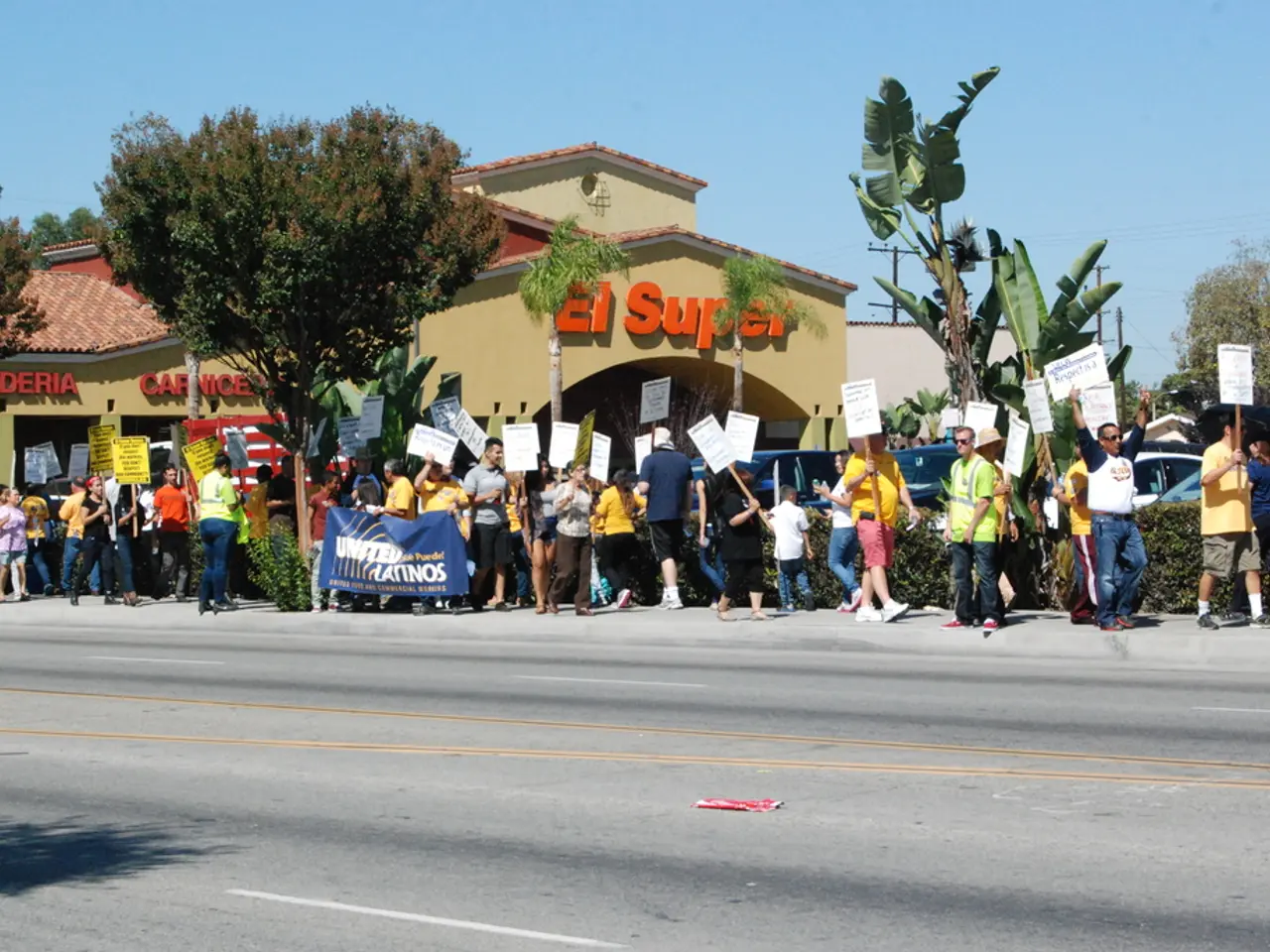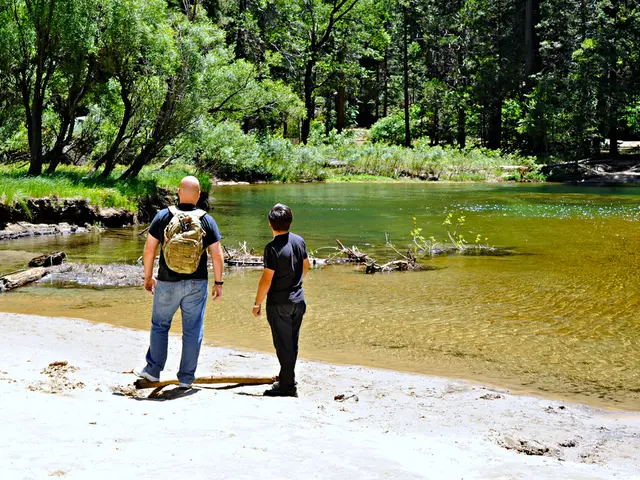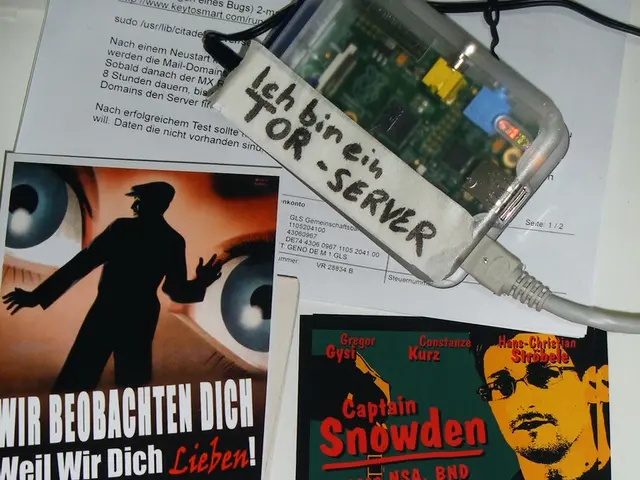Collaborating with Your Government Officials
Effective Local Lobbying: Building a Stronger Community Voice
Lobbying is a powerful tool for citizens to effect change and influence local decision-makers. At its core, lobbying involves gaining access to decision-makers, providing them with information, putting one's view forward, and persuading elected representatives to bring about change.
To successfully lobby local elected representatives, key methods and strategies include building strong relationships, clear communication, strategic organizing, and leveraging technology.
Relationship Building
Establishing trust and credibility with local elected officials is crucial. Regular engagement, attending community meetings, and maintaining ongoing dialogue can help build these relationships.
Clear and Concise Communication
Presenting your case with clear facts, personal stories, and concise materials tailored to the representative’s interests, values, and constituency priorities is essential.
Organized Campaigns
Developing comprehensive campaigns that include community mobilization, public events, and coalition-building with partners sharing similar goals can increase the impact of your lobbying efforts.
Leveraging Technology
Modern tools and platforms can help manage information flow, communicate efficiently, and coordinate team efforts, making lobbying more effective and efficient.
Engaging Multiple Stakeholders
Involving diverse voices, especially those with lived experience related to the issue, can deepen legitimacy and perspective.
Prepare for Obstacles
Anticipating opposition and planning strategies to address conflicts, misinformation, or internal disagreements can help maintain momentum and credibility in advocacy efforts.
Long-Term Commitment
Pursuing sustained engagement and power-building rather than one-off requests can generate lasting influence in local government.
Customized Approach
Understanding the specific legislative environment, rules, and priorities of the local government and adapting tactics accordingly can lead to better outcomes.
Methods of Lobbying
Lobbying can involve multiple methods such as letters, emails, phone calls, social media, or in-person meetings. A hand-written letter, for example, can be effective when lobbying, but should be short, personal, local, simple, stylish, and followed up with a phone call.
Resources for Lobbying
The Commons Directory of Australian MPs and Senators, Lobbying Playbook, ACF Community Toolkit, and a Stakeholders' Guide to the Australian Senate are related resources for lobbying. A How to Guides: Running local campaigns resource is available on the Friends of the Earth (England, Wales & Northern Ireland) website.
Tips for Successful Lobbying
When meeting as a group, get together beforehand, decide which aspects of the issue each person will concentrate on, have one person observing and taking notes, and don't disagree with each other. When posting on social media, stay professional, be original, know what you are saying, be direct and concise, look for hashtags, moderate your posts, focus on key moments, and avoid lobbying on too many different issues at once.
After a meeting, thank your elected representative, remind everyone involved of any action points, get in touch with the local media, keep up the dialogue, and be persistent if you don't get the response you want. Social media can be a great way to complement other forms of contact with your elected representative.
Before a meeting, arrive on time, decide on the main outcomes you want, plan key messages, don't worry about not being an expert, and decide whether to make an appointment as an individual or as a group. Email can be an effective way to start communications with representatives, but personalization is key to make it stand out. Research is important when using social media for lobbying, as not all politicians are active on every platform.
Elected representatives want to hear from constituents to stay informed, gauge job performance, and understand concerns. They hold regular surgeries or drop-in sessions for the people they represent. Targets for lobbying can be local councils, Members of Parliament (MP), Assembly Members (AM) in Wales, Members of the Legislative Assembly (MLA) in Northern Ireland, or Members of the European Parliament (MEP).
In conclusion, effective lobbying at the local level is as much about persistent relationship and campaign-building as it is about presenting a compelling policy case, all supported increasingly by technology-enabled management of legislative processes and constituent engagement.
- To build a stronger community voice through lobbying, consider leveraging modern resources such as the Commons Directory of Australian MPs and Senators, Lobbying Playbook, ACF Community Toolkit, Stakeholders' Guide to the Australian Senate, and Friends of the Earth (England, Wales & Northern Ireland)'s How to Guides: Running local campaigns.
- Effective campaign planning involves establishing strong relationships with local elected officials, communicating clearly with concise materials, organizing comprehensive campaigns, and utilizing technology efficiently to manage information flow and coordinating efforts.
- Involving diverse stakeholders, especially those with lived experience related to the issue, can deepen legitimacy and perspective in lobbying efforts.
- Customize your tactics according to the specific legislative environment, rules, and priorities of the local government for better outcomes.
- When meeting with elected representatives, arrive on time, decide main outcomes, plan key messages, and consider making appointments either individually or as a group for a more effective meeting.
- Emails, letters, phone calls, or in-person meetings can be used as lobbying methods, with hand-written letters being effective if personal, local, concise, and followed up by a phone call.
- Maintaining an ongoing dialogue, thanking representatives, reminding everyone involved of action points, staying in touch with local media, and being persistent are important aspects of lobbying.
- Social media is a valuable tool for complementing other forms of contact with elected representatives, but research is crucial to find the platforms where your representatives are most active, stay professional, and focus on key moments while avoiding listing too many different issues at once.




